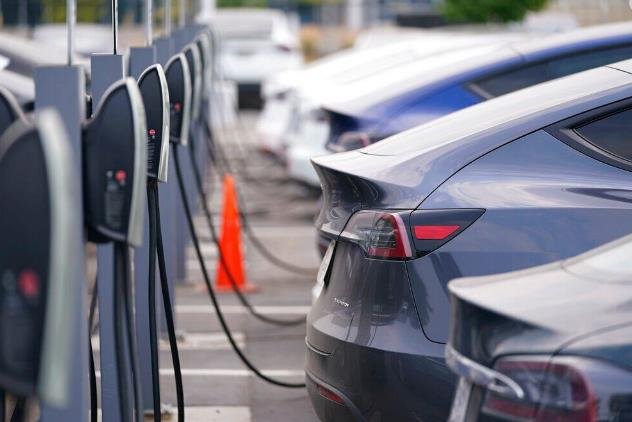A new report by the Electric Vehicle Coordinating Council (EVCC), a group of state agencies and stakeholders, has proposed a comprehensive plan to speed up the adoption of electric vehicles (EVs) in Washington state. The report, titled “Transportation Electrification Strategy”, is expected to be released to the public today, with a public hearing scheduled for Oct. 11.
The report outlines the current status, challenges, and opportunities for transportation electrification in Washington, as well as the goals and strategies to achieve them by 2030 and beyond. The report covers various aspects of transportation electrification, such as passenger vehicles, transit buses, medium- and heavy-duty vehicles, ferries, aviation, and charging infrastructure.

The report also identifies the benefits of transportation electrification for the state, such as reducing greenhouse gas emissions, improving air quality, enhancing energy security, creating jobs, and saving money for consumers and businesses.
Washington aims to have 50% of new car sales be electric by 2030
One of the main goals of the report is to increase the market share of EVs in Washington to 50% of new car sales by 2030, and 100% by 2035. This would require increasing the number of EVs on the road from about 85,000 today to over 1.2 million by 2030.
To achieve this goal, the report recommends several strategies, such as:
- Expanding and improving the state’s EV incentive programs, such as sales tax exemptions, rebates, grants, loans, and vouchers.
- Increasing the availability and accessibility of charging infrastructure, especially in rural areas, multi-unit dwellings, workplaces, and public places.
- Supporting the development and deployment of innovative charging solutions, such as vehicle-to-grid (V2G), wireless charging, and chargers integrated into street lights.
- Enhancing consumer awareness and education about the benefits and options of EVs, through campaigns, events, online tools, and dealer training.
- Encouraging fleet electrification for public and private entities, such as transit agencies, school districts, delivery services, and ride-hailing companies.
- Promoting equitable access and affordability of EVs for low-income and disadvantaged communities, through targeted incentives, outreach, and partnerships.
Washington is a leader in clean transportation policies
The report also highlights the existing policies and initiatives that have made Washington a leader in clean transportation in the US. For example:
- Washington has adopted a Clean Car Standard that requires automakers to sell a certain percentage of zero-emission vehicles (ZEVs) in the state.
- Washington has joined the Multi-State ZEV Action Plan, a coalition of 12 states that are committed to accelerating the adoption of ZEVs in their regions.
- Washington has enacted a Clean Fuel Standard that requires fuel suppliers to reduce the carbon intensity of their products over time.
- Washington has established an Electric Vehicle Infrastructure Bank that provides low-interest loans for charging projects.
- Washington has invested in several programs and projects that support transportation electrification, such as Electrify America, West Coast Electric Highway, Drive Clean Seattle, and Puget Sound Energy’s Green Direct.
Washington faces challenges and opportunities in transportation electrification
The report also acknowledges the challenges and opportunities that Washington faces in advancing transportation electrification. Some of the challenges include:
- The high upfront cost and limited availability of some EV models
- The lack of consumer awareness and confidence in EV technology
- The need for coordination and collaboration among various stakeholders
- The potential impact of EV adoption on the electric grid and utility rates
- The uncertainty and variability of federal policies and regulations
Some of the opportunities include:
- The abundant and low-cost renewable energy resources in the state
- The strong consumer demand and interest in EVs
- The growing innovation and entrepreneurship in the EV sector
- The potential for economic development and job creation from EV manufacturing and services
- The alignment with the state’s climate goals and vision
Washington invites public input on transportation electrification strategy
The EVCC is seeking public input on the draft Transportation Electrification Strategy before finalizing it. The public can submit comments online or attend a virtual public hearing on Oct. 11 at 10 a.m. The final report is expected to be submitted to the governor and the legislature by Dec. 1.
The report is part of a broader effort by the state to reduce its greenhouse gas emissions by 50% below 1990 levels by 2030, and achieve net-zero emissions by 2050. Transportation is the largest source of emissions in Washington, accounting for about 45% of the total.
By adopting a comprehensive strategy for transportation electrification, Washington hopes to become a national leader in clean mobility and a model for other states to follow.
